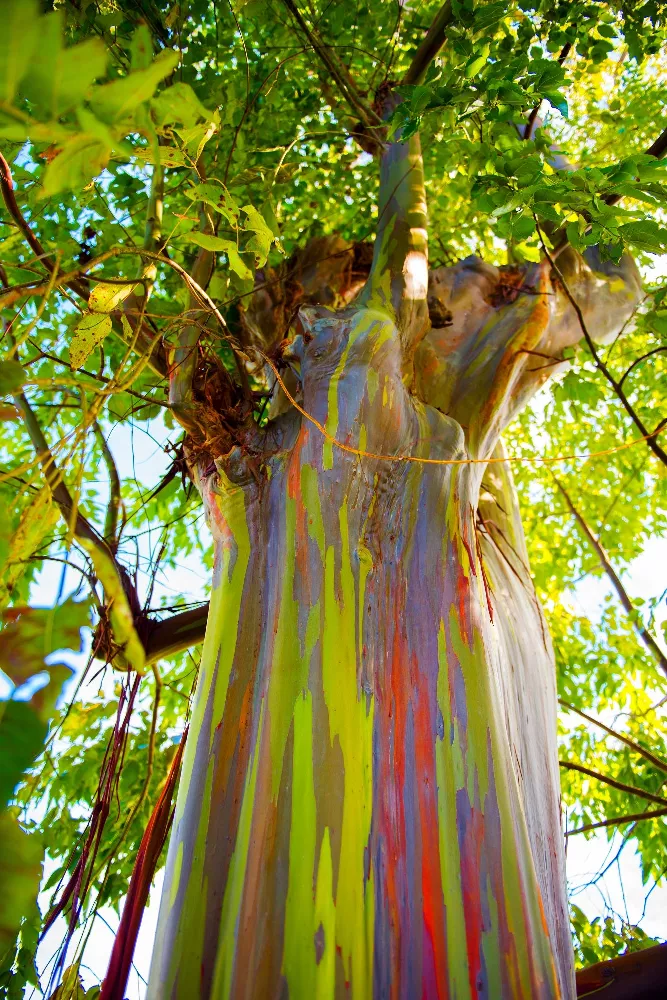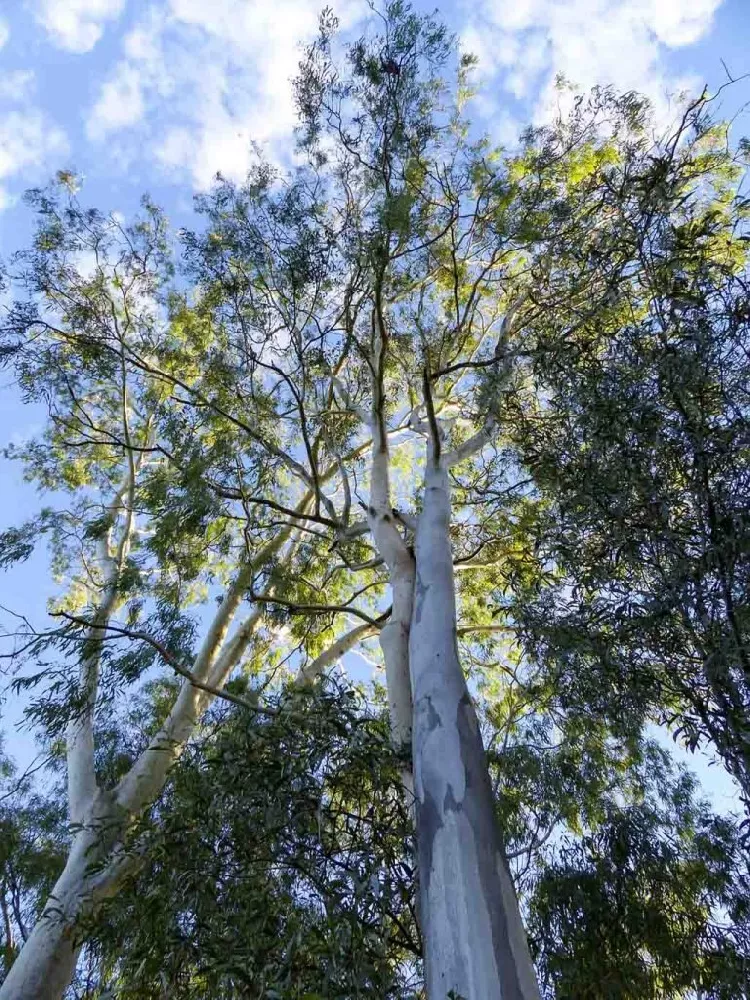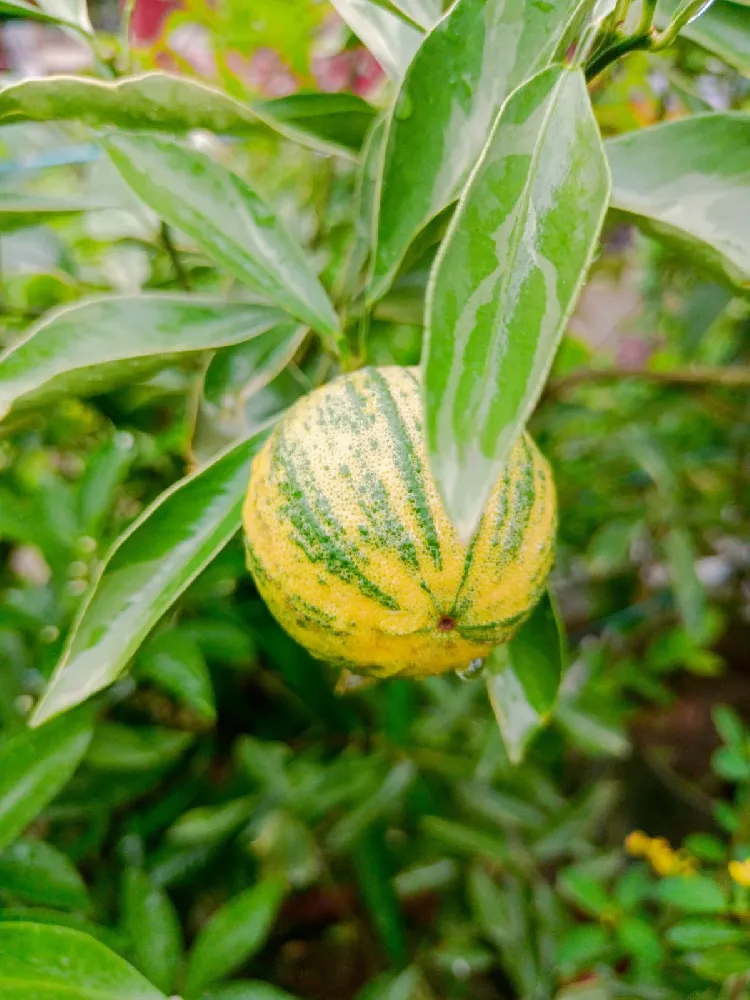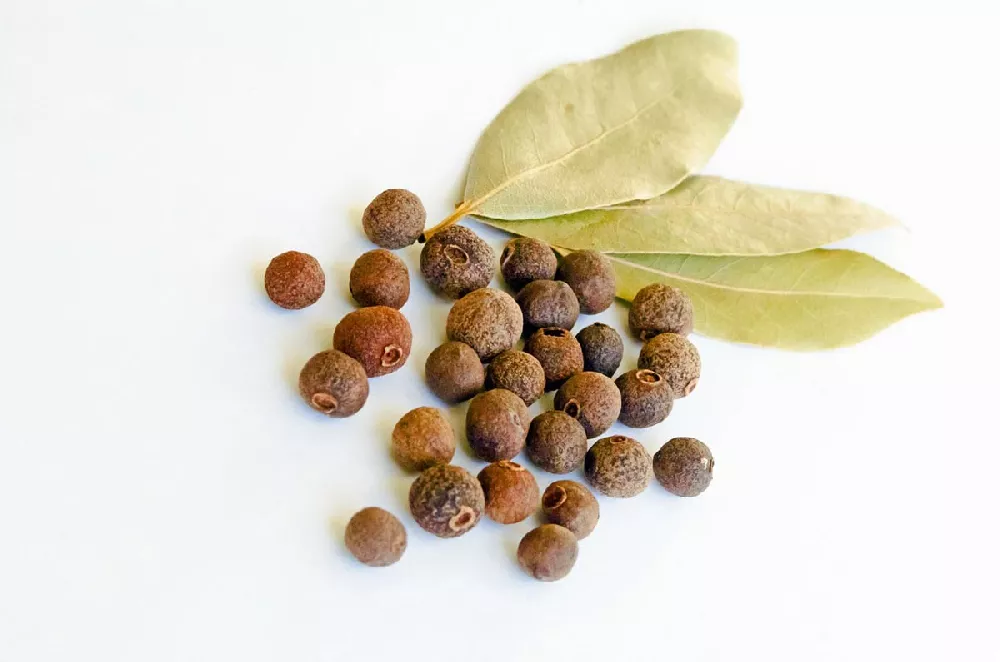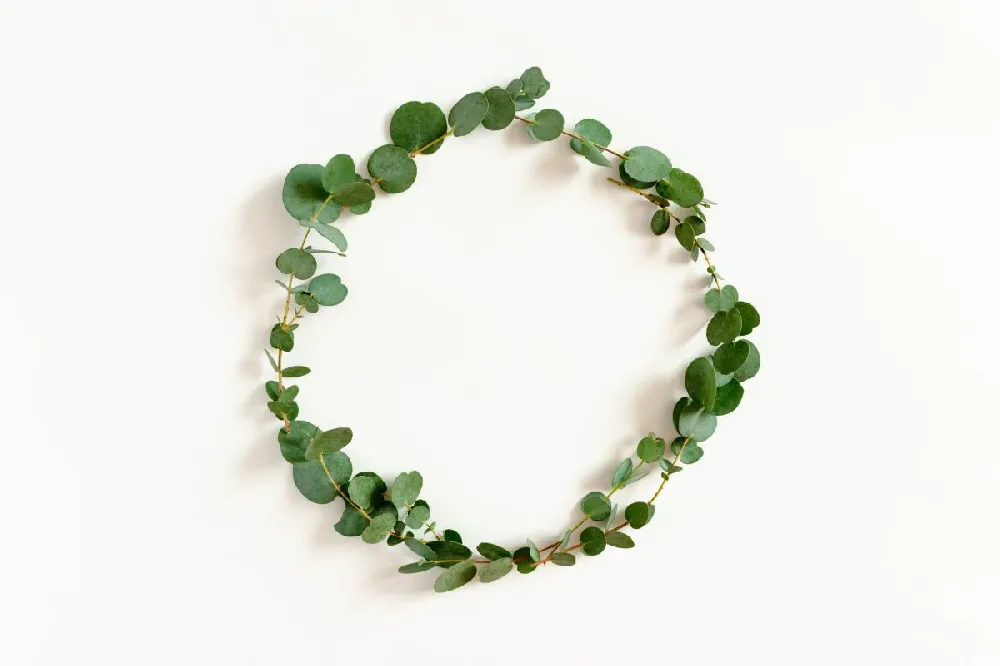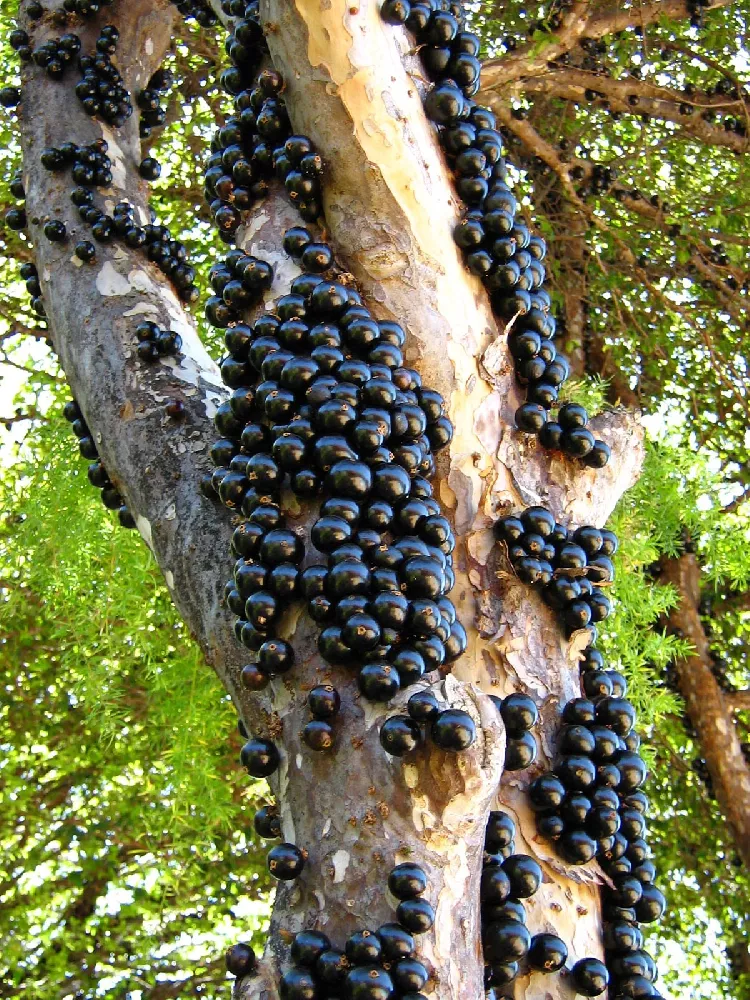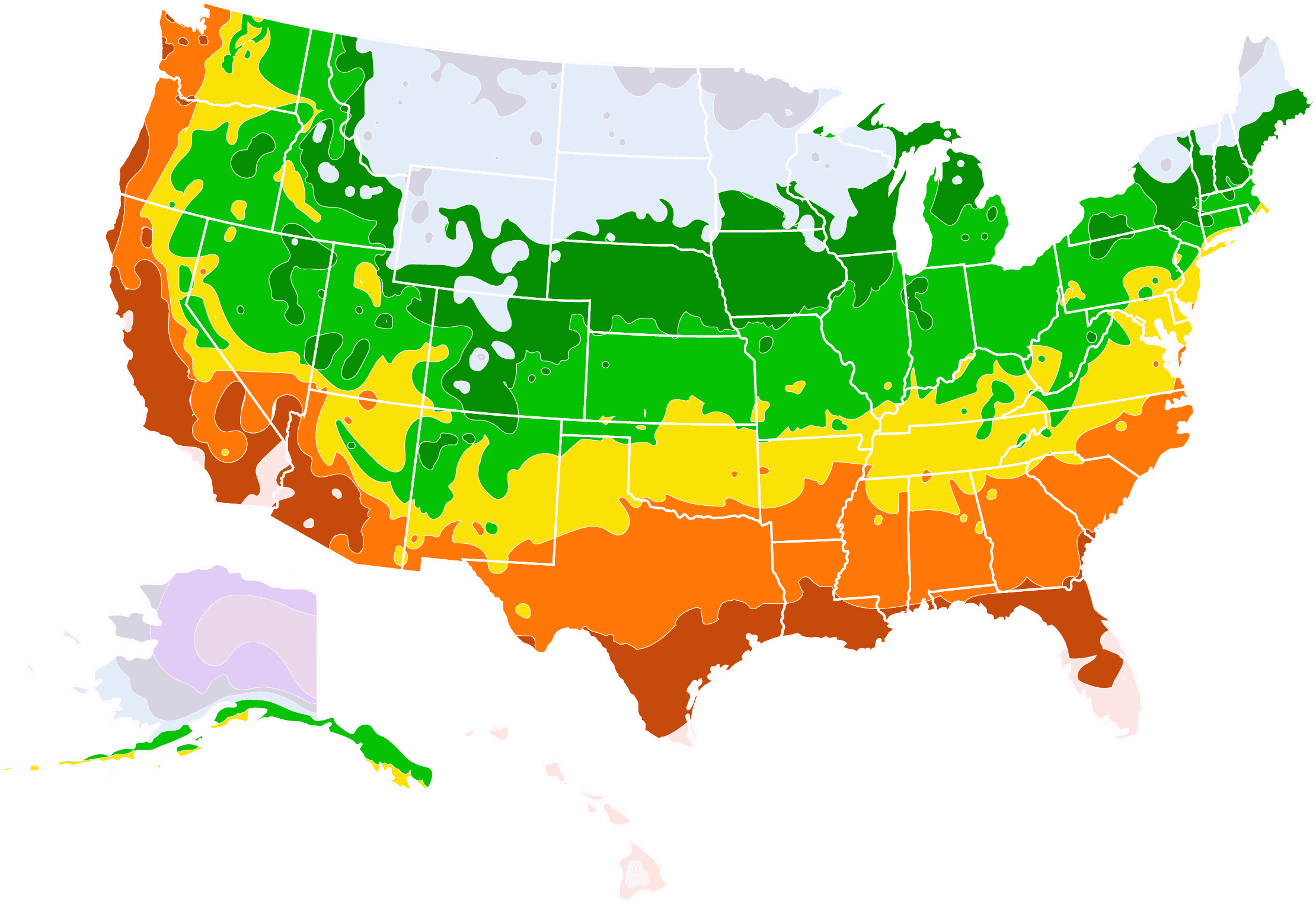- Home >
- Evergreen Trees >
- Rainbow Eucalyptus Trees
Rainbow Eucalyptus Trees for Sale
- Ships in 1-2 days
- 1-Year Warranty Eligible
- Pots or accessories are not included unless specified in the product options.
Shipping Details:
Once your order is shipped, you’ll receive an email with a tracking number and estimated delivery date. Most orders ship immediately, but some items are seasonal and may only ship in spring or fall. These products are noted on the website.
The rainbow eucalyptus (Eucalyptus deglupta) is a tree species native to the Philippines and Papua New Guinea. It is known for its towering height and rainbow-like bark that contains pastel streaks of orange, red, purple, blue, and green. The species is grown in large quantities for use as pulpwood in the manufacturing of paper.
- E. deglupta is also referred to as Mindanao gum or rainbow gum.
- Has the characteristic scent for which eucalyptus trees are known.
- In the U.S., the tree is commonly planted in warm climates, such as Southern California,
Plant Care
Sunlight

Choose a spot that receives full sun: 6-8 hours of direct light a day.
Watering
Loves moist soil that drains well. After planting, water every other day; once established, water when soil is dry.
Fertilizing

Trees don't need regular fertilizing but can benefit from the application of a diluted, low-phosphorus product.
Planting and Care
Planting instructions
Rainbow eucalyptus trees prefer a planting site that receives full sun. Your trees thrive when planted in well-draining soil. For maximum growth and to prevent problems, E. deglupta should be planted away from other trees, plants, sidewalks, and buildings. When you have found the perfect location, dig a hole twice as wide and just as deep as the tree’s root ball. Backfill with soil while keeping the trunk plumb (upright). Give the planting site a deep, thorough watering to make the roots feel at home.
Watering and nutrients
The rainbow eucalyptus tree requires large amounts of water and prefers to live in moist, well-drained soil. In their natural range, the species thrives in rainforests and is accustomed to unlimited access to water. During the first few weeks after planting, you will need to water your trees every other day. Once established, add water whenever the top two inches of soil becomes dry. E. deglupta performs well without fertilization, but the application of a diluted, low-phosphorus fertilizer encourages faster growth.
Pruning
E. deglupta does not require much pruning. Prune yearly to remove any dead, dying, or diseased portions of the tree. This infected plant matter should be disposed of away from other rainbow eucalyptus trees. The trees can be grown indoors, but they will outgrow their containers within a year or two. Frequent trimming can extend the time the tree lives inside, but you will need to transplant it outdoors within a few years.
Pests, diseases, and animals
In general, eucalyptus trees are pest and disease-resistant. Borers and beetles invade damaged trees. When pruning, be sure to use sharp, sterilized shears and avoid leaving open wounds in the spring and summer. Fungal diseases, such as leaf spot and cankers, are rare, showing up mainly on unhealthy trees. Provide proper spacing, airflow, and watering to prevent infections. The aromatic foliage is naturally resistant to deer, but setting up caging around the tree will prevent possible damage.
Fun Facts

FAQs
How big do rainbow eucalyptus trees grow?
Rainbow eucalyptus trees reach heights between 60 and 80 feet. In its native habitat, the species has been found to grow up to 250 feet tall. In these cases, the trunk can have a diameter of up to six feet. When grown in your backyard, you can expect a mature width between 20 to 30 feet. The species features a fast growth rate and can put on more than three feet of growth per year.
What factors should I consider when choosing a planting site?
If you want your tree to grow to its full size, pick a location where the roots will not run into other plants, sidewalks, or landscape features. The shallow root system expands quickly and causes damage if not given space to grow. These hefty roots help support the tree’s massive heights at maturity. Plant your rainbow eucalyptus trees near a pond or stream to give them access to as much water as they desire.
What features help identify Eucalyptus deglupta?
For the first few years of growth, the colorful trunk may not be as apparent, especially if the bark has yet to begin shedding. There are other ways to identify the tree, such as the fuzzy, white flower clusters. These clusters have seven individual flowers that bloom in the spring. The fruits that form are small, brown, and capsule-shaped. Each fruit contains a few dozen seeds with an attached wing. While not as fragrant as other species, the foliage of rainbow eucalyptus still contains the characteristic aroma.
What causes the rainbow patterns on the tree’s trunk?
If you encountered a rainbow eucalyptus tree, you certainly noticed the colorful patterns on the trunk of the tree. The visible colors are different internal layers of the tree. The tree’s bark sheds at different times and rates, causing multiple layers of the tree to be exposed at a given time. These layers are of different colors, causing the rainbow trunk pattern the tree is famous for.
